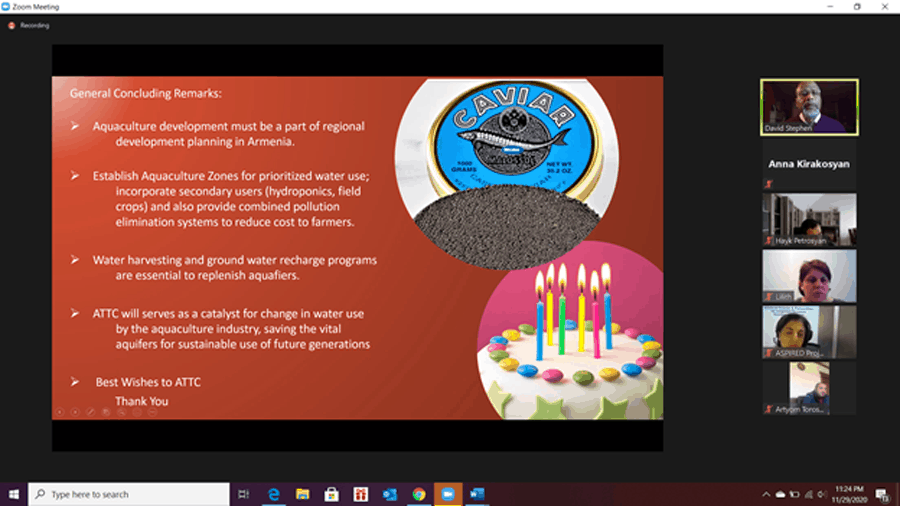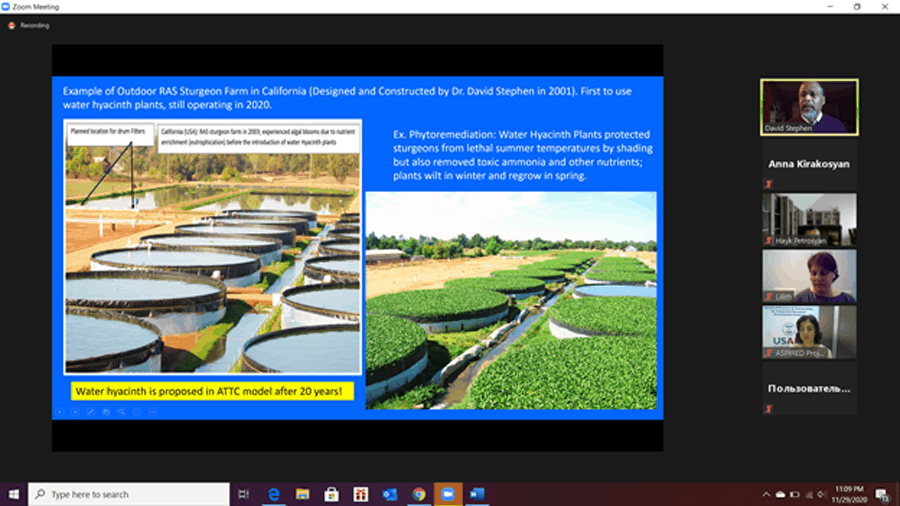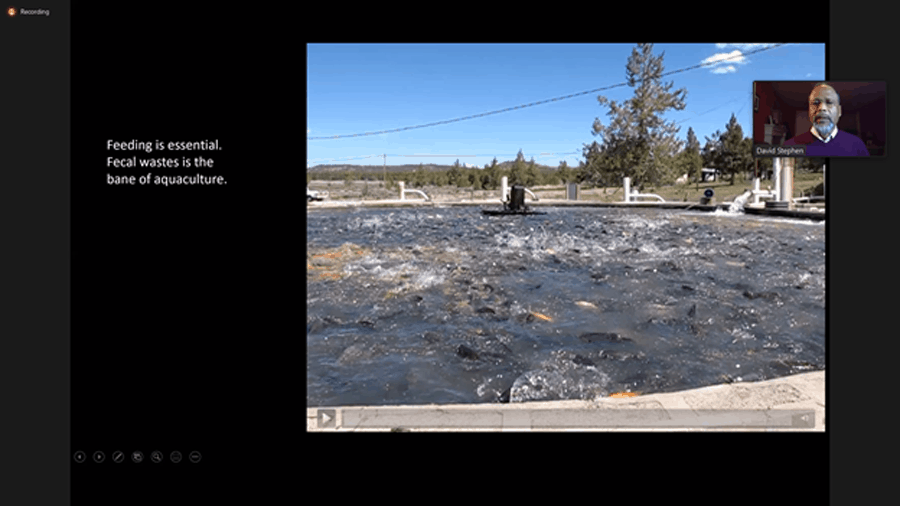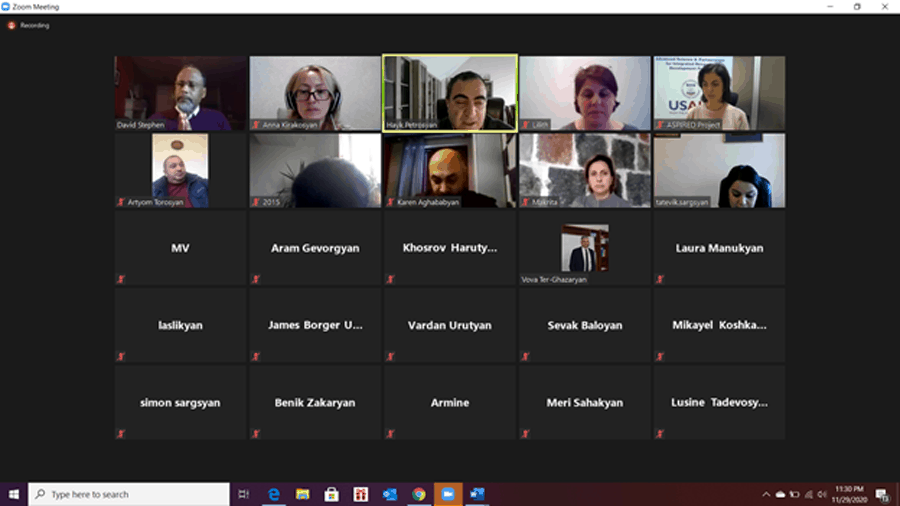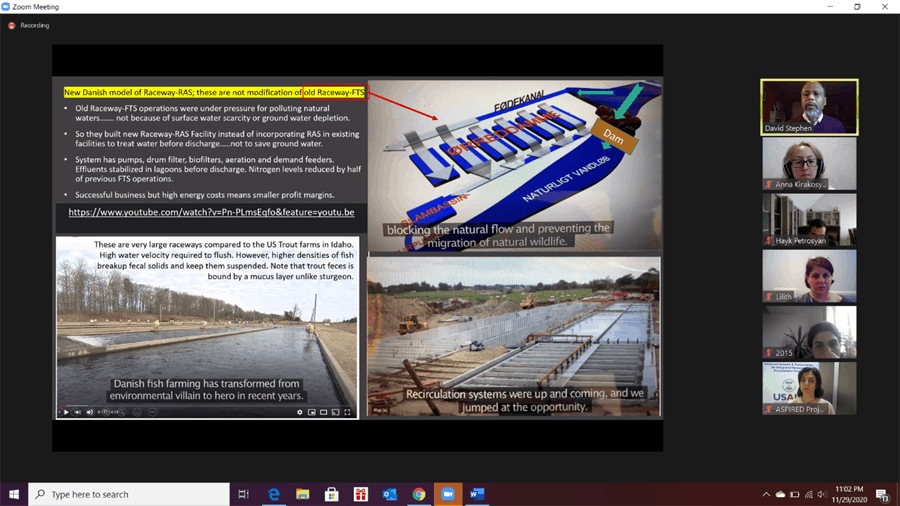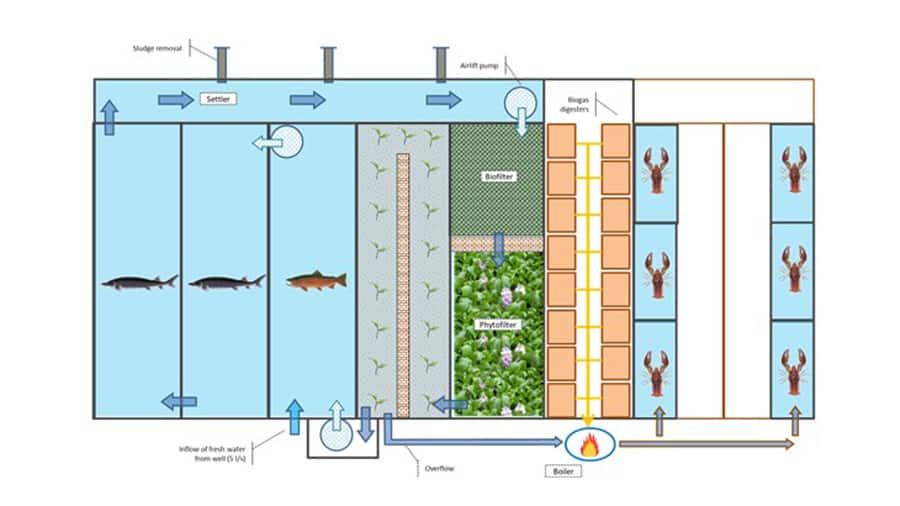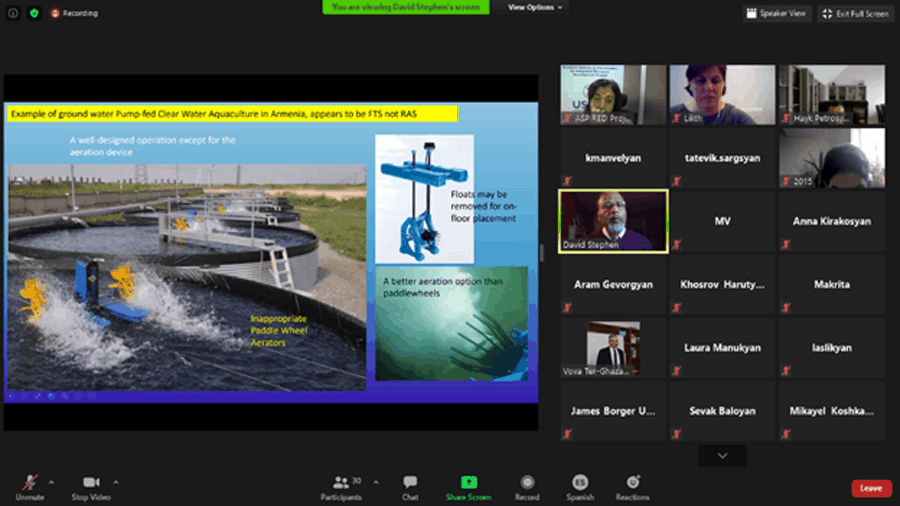
Online Presentation Showcases Modern Aquaculture Technologies of ASPIRED Pilot Fishery
The recently built Aquaculture Technology Transfer Center (ATTC) – a pilot project implemented by the ME&A-led USAID/Armenia Advanced Science and Partnerships for Integrated Resource Development (ASPIRED) Project – was the focus of a recent online presentation including ATTC and USAID leadership, project partners, and fish-farming representatives.
In his welcoming remarks, USAID’s Economic Growth Office Director James Borger emphasized the partnership between USAID and the Government of Armenia in the water sector. He noted that USAID encourages use of innovative technologies and methods that will help curb groundwater extraction in Armenia’s Ararat Valley to sustainable levels. Over exploitation of the valley’s groundwater reserves, including from fish farms, has left more than 30 communities in the region facing a shortage of drinking and irrigation water.
Established in cooperation with the private fishery Armavir Farmer in Metsamor, the ATTC serves as an experimental base for testing and validating different aquaculture technologies on a single site. During the online presentation, local aquaculture expert Karen Aghababyan introduced the ATTC’s technical solutions and methods to the participants of the zoom conference. International aquaculture expert David Stephen presented international best practice in aquaculture in the ATTC context.
The technologies and methods ATTC uses include water recirculation combined with passive settling for removing solid organic particles from water, airlifting for enriching water with oxygen, and use of bio- and phyto-filtration systems. Recycled outlet water will be used for crayfish farming, after which the wastewater will undergo biological treatment in a reed-bed (wetland) facility before being discharged into the drainage system. This will help to minimize the possible negative impact on the environment. The system will recirculate about 70 percent of water, and only 30 percent of inlet water will be taken from the well. The pilot will help to save 2.5 million cubic meters of water and generate energy savings equivalent to 63 MWh per year.
Once proven successful, other fish farms in the region can replicate these technologies and best practices. An individual entrepreneur from Masis region, Artem Torosyan, has already built a recirculation system in his fishery. He applied both airlift pumps and a sludge removal system to adapt ATTC solutions to his facility. The fishery produces about 80 tons of fish and by the feedback of Artem Torosyan, the airlift pumps ensure efficient and quality fish production.
Fish farming is one of the largest consumers of the Ararat Valley’s groundwater resources, accounting for some 50 percent of the water use.
The representative of the Ministry of Economy Tigran Aleksanyan acknowledged the efforts of USAID and ASPIRED aimed at increasing the efficiency of the fish-farming sector through innovations and water-saving solutions, including recycling fish farm water for irrigation. Based on the recent data of the Armenian Ministry of Economy, the local aquaculture sector output ranges between 17,000-18,000 tons of fish per year, producing mostly trout and sturgeon. About 20-30 percent of this fish produce is exported to Russia, Georgia, the United States, the United Arab Emirates, Ukraine, and other countries. Application of water-saving technologies for aquaculture production will help to minimize costs and achieve fish farmers’ more sustainable use of groundwater.
USAID/Armenia awarded ASPIRED to ME&A as a task order under the Water and Development Indefinite Delivery Indefinite Quantity Contract (WADI) providing the USAID Bureau for Economic Growth, Education, and Environment with services and technical support to assist USAID’s Missions, Bureaus, and Offices worldwide in the implementation of the Agency’s Water and Development Strategy.
Under ASPIRED, ME&A collaborates with the USAID/U.S. Global Development Lab/Center for Data, Analysis, and Research (DAR), the U.S. Geological Survey, and other relevant institutions to pilot innovative technologies for water conservation and fish farms; establish transformational partnerships; and promote evidence- and science-based water resource monitoring, planning and management. In addition, ME&A also works with the private sector, academia, and other donors to leverage their resources and expertise in the Armenian water and energy sector.




